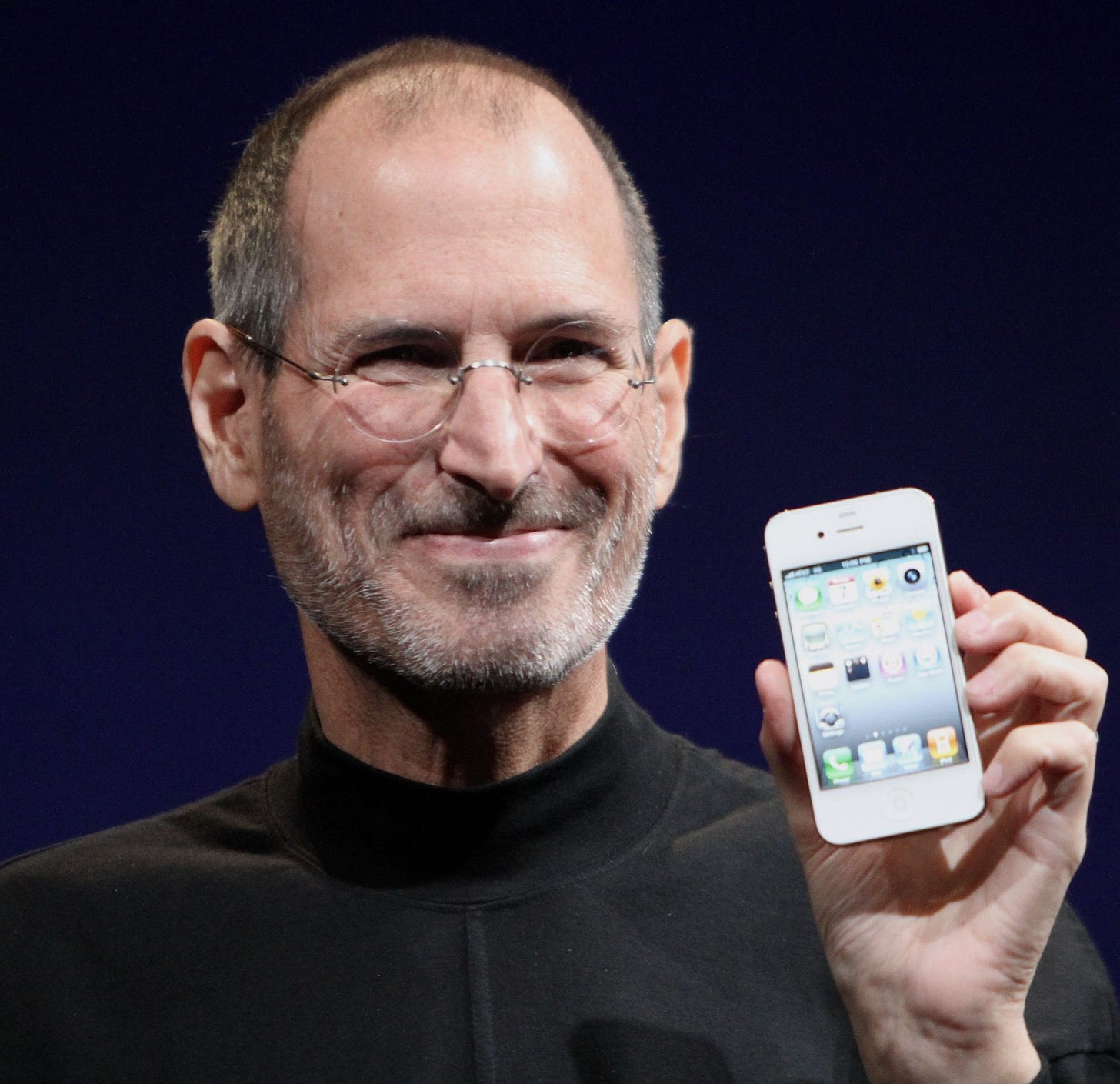Steve Jobs Is Dead and Soon No One Will Care
Reposting on the anniversary of Steve Jobs' death.
Yesterday was the anniversary of Steve Jobs’ death. I intended to post this yesterday but I've been writing lots of code and running some experiments on the internet (about which more later). Anyway, what follows is something I posted as a “Facebook Note” back when dinosaurs still roamed the earth, and just after Steve Jobs died.
******************************************
The death of Steve Jobs has captivated the thoughts of many people around the world and been the cause for much reflection on the significance of his life. Mortality is the great leveler and, no matter how great one’s accomplishments, our collective destiny is “mouldering in the grave” as the song says.
Steve was, by any standard, an extraordinary technologist and business man. He is deservedly being lauded as a visionary.
And while I take a backseat to no one in terms of admiring his creative genius, I’m haunted by this sobering thought: He’ll soon be forgotten by nearly everyone.
Some years ago I found myself on a plane, flying from London to the south of France to speak at a technology conference. I was seated next to an attractive young couple “on holiday” as the Brits like to say. They were both physicians in the UK and they were very interested to be talking with an American. They were eager to find out about America and I was equally as eager to understand more about the lives of people living in the UK, so we had a very enjoyable talk as we winged our way to the Mediterranean.
Now I have always been interested in Winston Churchill. Nearly alone, it was he who warned of the dark days on the horizon and the gathering dangers of Nazi Germany. He was mocked and ridiculed by the establishment politicians and, when all hope seemed lost, the nation finally turned to him to lead his monarch’s government. He defied the villainy of Hitler and the third reich, stubbornly refusing to bow to the seeming inevitability of Nazi victory . “If this long island story of ours is to end at last, let it end only when each of us lies choking on his own blood upon the ground”, he declared. Were it not for Churchill putting himself into the breach at the critical moment, millions more would have died in the deadly years of the 1940’s.
And when he died the entire world mourned.
As I sat talking with these young doctors, I casually asked if they had ever been to Chartwell. (Chartwell is the home of the Churchills. I sort of assumed I was asking a question akin to an American being asked if he had ever been to Monticello, or Mt. Vernon.) In response I received a puzzled, questioning expression and the words “What is Chartwell?” When I explained that Chartwell was Winston Churchill’s home I was met with a kind of confused, awkward silence followed by the embarassed suggestion that it was strange that anyone would suppose they would know anything at all about Chartwell or be particularly interested in Winston Churchill. These two young people, both highly educated physicians whose very existence was in part due to the courage and fortitude of a giant of the 20th century, knew almost nothing about Sir Winston.
Alas, Steve Jobs was a creative genius of the first order but if someone as consequential as Winston Churchill is forgotten within 2 generations by his own countrymen, well, the memory of Steve Jobs will soon sink like a rock beneath the waves.
Everything he created and accomplished will soon be forgotten. Or, at least, it won’t be identified with him.
Of course, this should not come as a surprise. After all, the writer of Ecclesiastes has been warning us about this very thing for thousands of years. Nothing, he says, about our material life has any lasting value. Nothing at all.
But I was struck by this video of Steve’s Apple co-founder, Steve “The Woz” Wozniak, speaking about the passing of his former business partner. He talks with enthusiasm about their lives and the early days of Apple, but it is at the very end, when he speaks of the loss of a friend, that the tears first appear. And in this brief moment, I think, is a clue to the things that won’t be forgotten. The things that last.
At the end of all things, what do we live for that lasts? The outrage we feel at the loss of someone we love, and the gut-wrenching sense that this is not the way things should be – these are vestigial instincts from long long ago. Francis Schaeffer spoke of these kinds of things as “leftover beauty”. Deep within every person lurks the distant memory that we were not made to be temporary and that love should never end.
People here and there have known this for millenia but we forget it – we forget many things – as we wander through life with iPods in our pockets and buds in our ears.
“What is the most important commandment?” asked the lawyer.
“Love the Lord your God with all your heart and with all your soul and with all your mind and with all your strength”, Jesus replied. “And the second is this: love your neighbor as yourself. There is no commandment greater than these.”
I hope – I sincerely hope – that this man we so admired was able to know and embrace the giver of all good things as he faced his final moments. I hope his legendary vision extended to places we never knew.
May God have mercy on Steve, and on us all.


